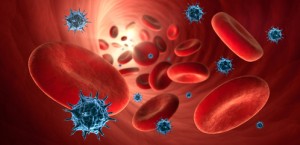Contents
What is methionine?
The sulphurous α-amino acid L-methionine is an essential amino acid. This means that the body is not able to manufacture it by itself. Therefore you need to include it in your diet.
One of the main functions of methionine is in building various protein molecules. It is also important in the synthesis of another sulphurous amino acid called L-cysteine.
A healthy adult should consume around 19 mg of L-methionine per kilo of body weight per day. However particular conditions and circumstances can lead to a higher requirement. These include allergies, liver conditions and urinary tract infections.
Nutritional supplements can also be used to ensure the increased requirement is met. Otherwise methionine deficiency can exacerbate depression, allergies and lead to an excess of toxins.
The metabolisation of excess methionine is connected to the formation of sulphuric acid. Therefore the kidneys can use this amino acid to acidify the urine. This can help to treat certain conditions.
For example, urine with a pH value of between 4 and 6 can optimise the effects of many antibiotics including ampicillin, and prevent the formation of kidney stones. L-methionine can also inhibit the growth of bacteria in cases of cystitis. This is because most bacteria cannot survive in an acidic environment.
In addition, doctors may use methionine for artificial nutrition in intravenous drips.
Dietary sources
In total, the recommended daily requirement of L-methionine is around 2g to 3g, though this can vary due to external factors. Some pre-existing conditions lead to an increase in the individual needs of the body and should therefore be treated with the relevant supplementation.
As this amino acid cannot be produced by the body itself, it is necessary to ensure an intake through nutrition or supplementation. Almost all foods containing protein also contain methionine.
There is hardly any difference between plant-based and animal products regarding the amount of L-methionine contained within it and the bioavailability. L-methionine is fairly soluble therefore you should not boil or soak foods containing it for too long. This can wash out the amino acid, leaving only a small amount for the body to absorb. High temperatures during cooking or baking can also destroy the structure of amino acids.
Brazil nuts are the best source of methionine, as they contain around 1000mg per 100g. They also contain multiple unsaturated fatty acids, which have numerous positive effects on the human body. These include the destruction of free radicals and the regeneration of some types of tissue.
Other methionine rich foods include:
- Sesame seeds (around 586mg of L-methionine per 100g)
- Raw salmon (around 626mg per 100g)
- Beef (around 554mg per 100g)
- Chicken breast fillet (around 552mg per 100g)
- Dried soya beans (around 547mg per 100g).
Green vegetables, including broccoli, sprouts and spinach, are also good sources. However in order to use this substance in medical treatment, you need a specifically-designed nutritional supplement with a special amino acid compound.
Functions of methionine
Methionine is a precursor of cysteine and taurine. Its also has antioxidant properties and can therefore protect the body from toxic substances and free radicals. It reacts with the damaging substances and therefore prevents the destruction of other substances or cells.
Methionine influences many functions within the body as one of the building blocks for several critical proteins and hormones, for example, carnitine, adrenaline, choline and melatonin.
- Carnitine is necessary for the energy metabolism of the body and enables the transport of long-chain fatty acids through the mitochondrial membrane.
- Adrenaline is a neurotransmitter which acts as a stress hormone. It puts the whole body on red-alert in dangerous situations; the blood pressure is raised and energy reserves are activated, among other things.
- Choline reacts to transmit stimuli by enabling the synthesis of the neurotransmitter acetylcholine. This is responsible for the transmission of nerve impulses to the heart and controls the transmission of stimuli between the nerves and muscles.
- Melatonin is necessary for the maintenance of the sleep cycle of the body, enabling healthy and restful sleep.
Methionine also reduces the level of histamine in the blood, which is why it can help with allergy symptoms. In addition, it is important for the regulation of the acid-base balance and provides sulphur atoms for various chemical processes. In this way, it can also contribute to the detoxification of heavy metals (such as mercury from dental fillings) through the formation of complexes.
Medical uses of methionine
Methionine is involved in the synthesis of a number of different substances and therefore contributes to the maintenance of health and fitness. Additionally, it influences many physiological processes therefore doctors may use it in the prophylaxis and treatment of certain conditions.
Urinary tract infections
As methionine makes urine more acidic, it can be used effectively to prevent urinary tract infections (UTIs). This is because E. coli, which is usually responsible for cystitis, cannot survive in an acidic environment.
A study in 2002 showed that taking methionine supplements markedly reduced the tendency for urinary tract infections1.
The use of supplements containing L-methionine is particularly beneficial for young women. This is because UTIs more commonly affect women than men. Supplementation can also reduce the risk of the reoccurrence of the infection.
Mental health
The treatment of depression and Parkinson’s disease can also be complemented by the use of L-methionine. This is because it has a role in many of the metabolic processes in the brain. It encourages the production of the mood-lifting neurotransmitter serotonin and can improve the ability of those suffering from Parkinson’s to be active.
When the relevant supplementation is used, it restores a chemical balance, thus reducing symptoms including trembling, erratic mood swings and sleep disorders. Polish researchers demonstrated this, and as a result it has been increasingly been used in the treatment of degenerative neurological conditions. 2
Methionine deficiency
The amount of methionine in the body affects the excretion of substances through urine. Therefore a deficiency in this amino acid can lead to related problems including fluid retention and oedema. It can also increase your susceptibility to infections. Additionally, the chances of having other health problems may be higher including arteriosclerosis and hair loss. Therefore it is important to make sure you are including enough of this amino acid in your diet, and supplements can help to meet these requirements. However it is important to seek medical advice before taking supplements, to ensure that these will not interfere with any pre-existing health problems.
Conclusion
Methionine is an essential amino acid which is important in the body. It is involved in the formation of many substances containing protein.
Additionally, it is necessary for the bonding and excretion of toxic heavy metal compounds. It is also capable of pushing the pH value of urine into the acidic part of the scale, reducing the occurrence of cystitis and other urinary tract infections. This also can help antibiotics work more effectively.
References
- Günther M, Noll F, Nützel R, Gläser E, Kramer G und Stöhrer M: Harnwegsinfektprophylaxe – Urinansäuerung mittels L-Methionin bei neurogener Blasenfunktionsstörung. Der Urologe (B). 2002; 218-220 ↩
- Krzystanek M, Paasz A, Krzystanek E, Krupka-Matuszczyk I, Wiaderkiewicz R, Skowronek R. (S-adenosyl L-methionine in CNS diseases). Psychiatr Pol. 2011 Nov-Dec;45(6):923-31. Review. ↩






